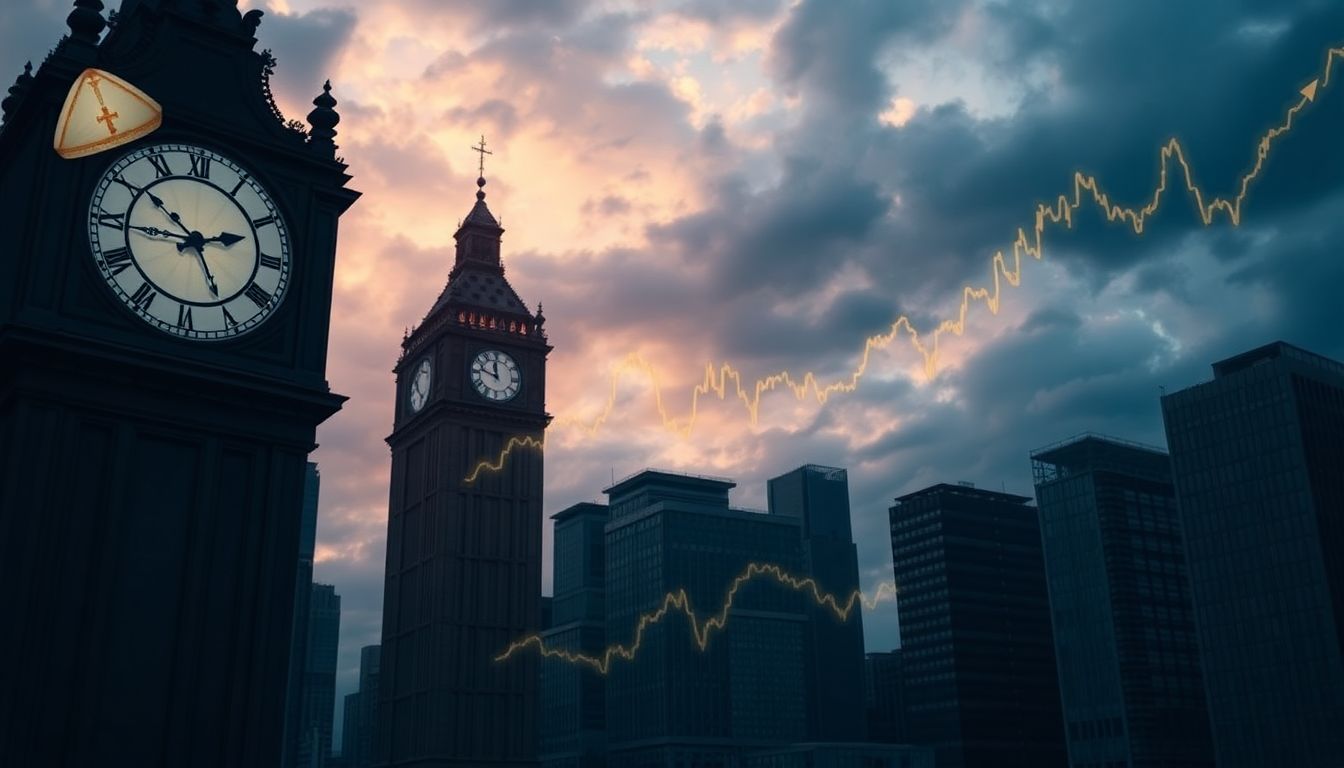
The death of a pope hits the world like a shockwave.
It's not only a religious event but also one that can shake financial markets worldwide. Investors pay close attention because such moments can lead to big moves in stocks, currencies, and bonds.
Understanding how the sudden absence of a spiritual leader influences the economy is key for anyone looking to protect their investments.
This article digs into the history, mechanics, and strategies around markets during these sensitive times.
The Role of the Vatican and the Pope’s Influence on Global Markets
Understanding the Vatican’s Economic Impact
While small, the Vatican holds a surprising amount of wealth. Their investments span art, real estate, and financial assets. The Vatican also has ties with international banks and charities. The pope is seen as a symbol of stability, especially for Catholic countries and organizations. His leadership boosts confidence in investments tied to the faith and its charitable efforts.
The Pope as a Diplomatic and Political Figure
The pope isn't just a religious figure; he's also a diplomat. His words can sway international relations and peace talks. When a new pope is elected, it can lead to shifts in how the world interacts with the Vatican. These changes impact countries with religious ties and influence global political stability.
Historical Market Reactions to the Pope’s Death
Previous Instances and Market Movements
Historically, the death of a pope has triggered noticeable market reactions. When Pope John Paul II died in 2005, markets experienced brief volatility. Similar patterns occurred after Pope Benedict XVI's death in 2022. Stocks, currencies, and bonds all showed signs of uncertainty. For example, the euro and the US dollar sometimes swing wildly during such periods.
Lessons Learned from Historical Data
Markets tend to react quickly but usually settle down within weeks. The first days often see the biggest swings, driven by fear and uncertainty. After the initial shock, investors tend to regain confidence as they see stability returning. Learning from past events helps predict future market behavior during similar times.
Short-term Market Impacts of the Pope’s Death
Market Volatility and Investor Sentiment
Right after the announcement, look for sudden jumps in stock indexes and gold prices. Currencies like the euro and dollar often fluctuate sharply. Investors become more risk-averse, moving money into safer assets. This fear can cause drastic drops or spikes in the markets almost overnight.
Impact on Religious and Cultural Sectors
The death can boost religious tourism temporarily. Many pray or visit sites related to the pope. Media outlets flood the airwaves, impacting news and entertainment companies. Charitable groups might also see an increase in donations, which can affect their stock prices and financial health.
Actions Investors Can Take
Staying calm is vital. Diversify investments to minimize risks. Use hedging strategies like options or ETFs to protect your portfolio. During such times, avoid making rushed decisions based on emotions. Instead, focus on long-term goals and avoid panic selling.
Long-term Market Effects and the Papal Succession
Influence of New Leadership on Market Confidence
When a new pope is chosen, the markets pay close attention. If investors see the new leader as a unifier, confidence can grow. But if the transition causes uncertainty, markets might dip. Past data shows that markets usually bounce back within a few months after a peaceful succession.
Potential Geopolitical and Economic Shifts
A new pope may change how the Vatican interacts globally. This can affect diplomatic ties with countries such as Italy, Latin American nations, and African regions where Catholicism is strong. Shifts in policies or alliances might occur, impacting regional economies.
Investing Strategies During Transition Periods
Use this time to review your portfolio. Keep an eye on geopolitical news and Vatican developments. Stay informed about any changes in religious or political alliances. Remember, patience and steady moves usually pay off during uncertain times.
Broader Implications for Global Financial Stability
The Intersection of Religion, Politics, and Economics
Religious leadership changes remind us how intertwined these worlds are. A new pope can influence peace, diplomacy, and even economic stability in unpredictable ways. Recognizing this connection helps investors prepare better.
Impact on International Markets During Religious Events
Other big religious events, like holidays or elections, can also shake markets. For example, if a religious leader calls for peace, markets might rally. But if tensions rise, expect volatility. Monitoring these events helps protect your investments.
Preparing for Future Events
Investors and policymakers need to be ready. Diversify your assets, stay informed about political and religious shifts, and avoid becoming too emotional about short-term swings. This approach helps navigate future uncertainties with greater ease.
Conclusion
The death of a pope moves markets but not forever. History shows short-term volatility, yet markets usually find stability again. Long-term, the new pope’s leadership can shape diplomatic and economic relations. Staying informed and diversified can help you weather these changes. As history teaches us, patience and awareness are your best assets during these pivotal moments. Keep an eye on geopolitical shifts and religious developments—they matter more than you might think. Remember, in markets, awareness is power.
